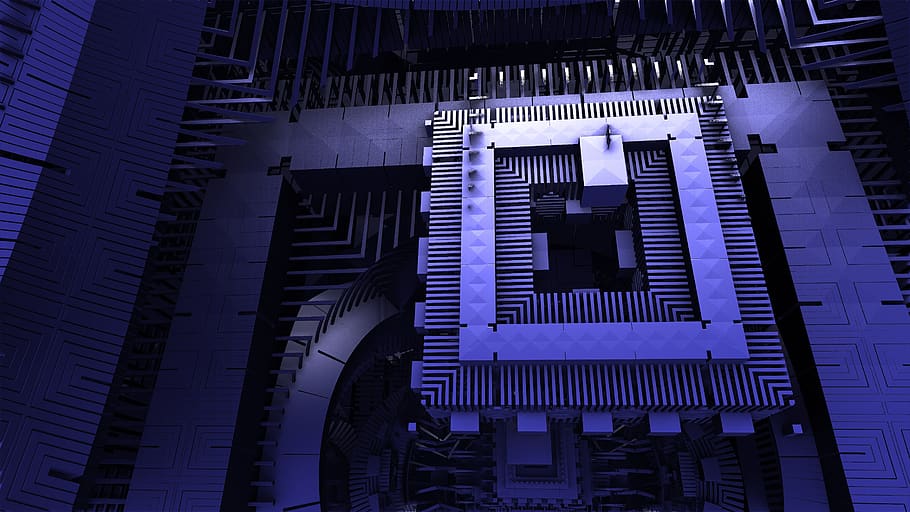Breaking Down the Basics: Understanding Quantum Computing for Beginners in 2023
Welcome to the exciting world of quantum computing! If you’re like most people, you’ve probably heard a lot about this emerging technology but don’t really understand what it is or how it works. Don’t worry – you’re not alone! Quantum Computing is one of the hottest topics in science and technology right now, and for good reason: it has the potential to revolutionize everything from finance to medicine. In this beginner’s guide, we’ll break down the basics of quantum computing so that even if you have zero technical knowledge, you’ll be able to grasp how this powerful new tool could change our world forever. Let’s get started!
What is quantum computing?
Quantum computing is a type of computing where information is processed using quantum bits instead of classical bits. This makes quantum computers much faster and more powerful than traditional computers. Quantum computing is still in its early stages, but it has the potential to revolutionize the way we live and work.
The difference between classical and quantum computing
Classical computers use a deterministic model of computation, meaning that they follow a set of precise instructions to arrive at a result. Quantum computers, on the other hand, use a probabilistic model of computation. This means that they perform operations based on the likelihood of certain outcomes occurring.
Quantum computers are able to solve problems that classical computers cannot because they can explore a larger space of possibilities. For example, a quantum computer could be used to factor large numbers much faster than a classical computer. This is because a quantum computer can consider all of the possible solutions simultaneously, while a classical computer can only consider one solution at a time.
The downside of quantum computing is that it is much more difficult to build and maintain than classical computing. This is because quantum computers rely on delicate quantum states that are easily disrupted by outside influences. As such, quantum computers must be carefully isolated from their surroundings in order to function properly.
Pros and cons of quantum computing
As with any new technology, there are both pros and cons to quantum computing. On the plus side, quantum computers have the potential to be much faster and more powerful than traditional computers. They could revolutionize fields like medicine and materials science by helping researchers find new cures for diseases and develop stronger, lighter, and more efficient materials.
On the downside, quantum computers are very expensive to build and maintain, and they require specialized expertise to operate. They are also very delicate, meaning that even a small change in temperature or electromagnetic radiation can cause them to malfunction. Finally, because they are so new, there is still a lot we don’t know about how they work and how to optimize them for specific tasks.
How quantum computers work
Quantum computers are able to perform calculations that would be impossible for classical computers. They exploit the fact that particles can exist in more than one state at the same time, and that measurements of these particles can influence the outcome of other measurements.
Traditional computers store information in bits, which can represent either a 0 or a 1. Quantum computers use quantum bits, or qubits. Qubits take advantage of the fact that particles can exist simultaneously in multiple states. This means that a qubit can represent a 0 and a 1 at the same time.
Traditional computers perform operations on these bits one at a time. Quantum computers exploit the fact that qubits can be entangled with each other. Entanglement is a quantum mechanical phenomenon in which two particles share the same state even if they are not physically connected. This means that operations can be performed on all of the qubits simultaneously.
https://bloggingstips.com/gaming/how-to-find-best-gaming-laptops/
The power of quantum computing comes from the fact that it can solve problems that are intractable for classical computers. For example, quantum computers can efficiently simulate quantum systems, which is difficult for classical computers because they would need an exponentially large number of bits to represent all of the possible states of a quantum system. Additionally, quantum computers can be used to search large databases much faster than classical computers.
What are some real-world applications of quantum computing?
As the world becomes more and more reliant on technology, the demand for faster and more powerful computers also increases. This has led to the development of quantum computing, which has the potential to revolutionize the way we process information.
Quantum computers are able to store and process massive amounts of data much faster than traditional computers. They can also be used to solve complex problems that are difficult or impossible for classical computers to handle.
One of the most promising applications of quantum computing is in the field of medicine. Quantum computers can be used to develop new drugs and treatments for diseases. They can also be used to create personalized medicine, which is tailored to the specific needs of each patient.
In addition, quantum computers can be used for security purposes, such as creating unbreakable codes and encryption methods. They can also be used to help prevent cyber attacks by identifying vulnerabilities in systems before they are exploited.laimfren
Conclusion
Quantum computing is an exciting new area of technology that promises to revolutionize the way we think about and interact with computers. This article has given you a brief overview of what quantum computing is, how it works, and what types of applications are being developed for it. We hope this introduction was helpful in giving you a better understanding of this cutting-edge technology so that you can begin exploring ways to use it in your own projects or research.For More Articles visit here




Post Comment